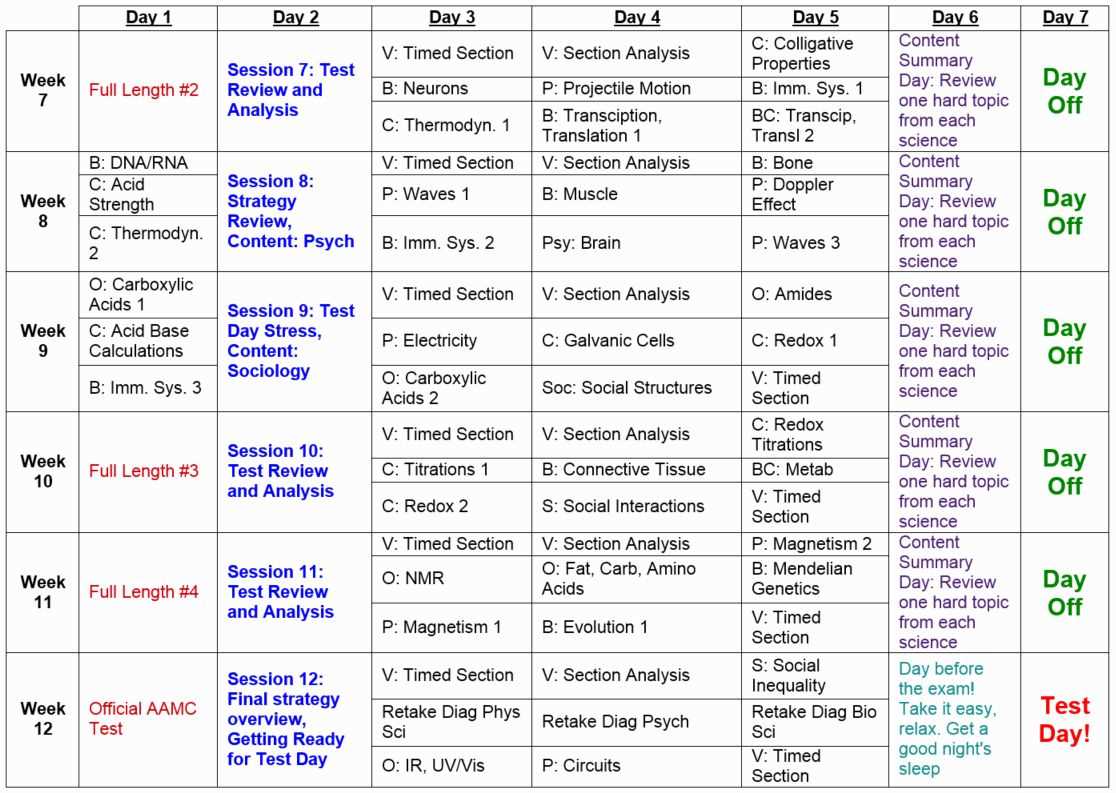
Preparing for a critical professional examination can be a daunting task. Achieving success requires not only dedication but also a structured approach that allows you to manage your time and resources efficiently. The key to making this process less overwhelming lies in the ability to break down your study goals into manageable segments, ensuring every topic gets the attention it needs without neglecting any areas of importance.
One of the most effective strategies for tackling such a comprehensive exam is through the use of a well-structured planning tool. With this method, you can set realistic milestones and deadlines, track your progress, and adapt your approach as necessary. By creating a clear outline of what needs to be accomplished each day, you minimize the risk of procrastination and maximize productivity, giving you a sense of direction and control over your preparation.
Staying organized and maintaining focus throughout your review process is crucial. A personalized, flexible planning system enables you to manage both your time and energy in an optimal way. With proper planning, you can approach your preparation with confidence, ensuring that each study session is purposeful and productive, leading to the desired results on exam day.
Creating an Effective NCLEX Study Plan
When preparing for a challenging certification exam, having a well-structured approach is crucial. A detailed and organized preparation process helps to efficiently manage time, cover all necessary content, and stay on track with progress. This approach allows you to focus on both mastering material and ensuring consistent improvement in key areas. A strategic framework is essential to avoid feeling overwhelmed and to enhance the likelihood of success.
Define Clear Goals and Prioritize Key Areas
To begin, it’s important to establish specific objectives and identify areas that require the most attention. Focus on weak spots or topics that may need more in-depth review. Allocate more time for challenging subjects while maintaining a balanced approach to other topics. By prioritizing effectively, you ensure that no area is overlooked, while giving extra emphasis to areas where you need more reinforcement.
Consistency and Flexibility in Your Approach
Consistency is essential, but flexibility also plays a key role in adapting to your progress and circumstances. Break down the material into manageable chunks and create a routine that allows you to gradually build on your knowledge. Regular review sessions can help reinforce learning, while allowing room for adjustments depending on how well you grasp certain topics. Keep your momentum steady and adjust as necessary to stay on track towards achieving your goals.
Stay motivated and embrace the journey, knowing that each step you take brings you closer to your target. The key is finding a balance that works for you and sticking to it, while keeping a positive outlook throughout the process. By crafting a comprehensive and adaptable preparation strategy, you set yourself up for a more confident and effective exam performance.
Understanding the NCLEX Exam Format
The exam you will face is designed to assess your knowledge, critical thinking, and clinical judgment in various areas of healthcare. This assessment process is meant to evaluate how well you can apply theoretical concepts in real-world situations, ensuring you are prepared for the responsibilities that come with your profession.
The structure of the test is unique and carefully designed to provide an accurate measure of your competence. Unlike traditional exams, it adapts to your responses, adjusting the difficulty of the questions as you progress. Here is a breakdown of its key features:
- Computer Adaptive Test (CAT): The system dynamically adjusts to your performance. As you answer questions correctly, the next ones become more challenging, whereas incorrect answers lead to easier questions.
- Question Types: You will encounter a variety of questions, including multiple-choice, select-all-that-apply, and fill-in-the-blank questions. Each type is designed to assess different aspects of your clinical knowledge and problem-solving skills.
- Test Length: The number of questions varies between candidates. You could be asked as few as 75 or as many as 145 questions, depending on how well you are performing.
- Time Limit: You will have a maximum of six hours to complete the exam, including breaks. Time management is crucial to ensure you can thoughtfully answer each question without feeling rushed.
It is essential to understand that the test is not just about recalling facts but also about demonstrating your ability to think critically and make decisions under pressure. Preparing for this structure will help you feel more confident as you approach the exam day.
Why a Study Calendar is Crucial
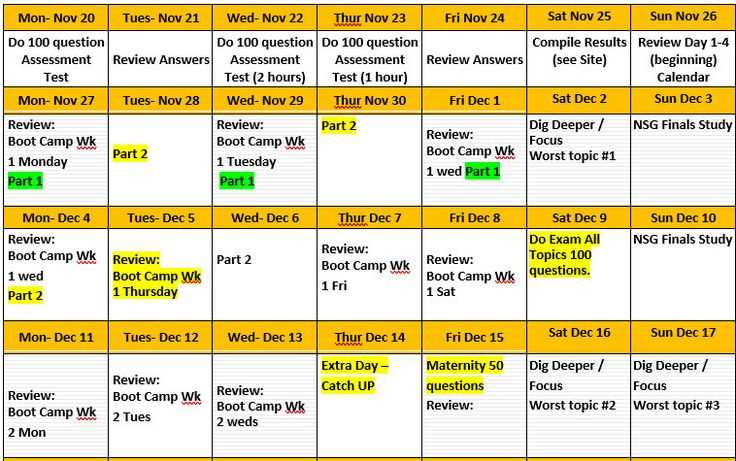
Effective planning is the backbone of achieving any goal, especially when it comes to mastering complex material. Without a clear roadmap, it’s easy to become overwhelmed by the volume of information that needs to be absorbed. A structured approach not only breaks down the learning process into manageable steps but also ensures that time is used efficiently.
Having a well-organized plan can help you:
- Stay on track and avoid procrastination
- Ensure you cover all necessary topics in a timely manner
- Balance study with rest and other responsibilities
- Identify and address weak areas early on
- Reduce anxiety and improve confidence in your preparation
When you map out your study sessions and set specific goals for each period, you’re not only organizing time but also creating a sense of purpose and direction. This helps to reduce distractions and makes it easier to stay focused. In essence, a well-thought-out plan is more than just a tool–it’s a strategy for success.
How to Organize Your NCLEX Preparation
Effective preparation for your licensing exam requires a structured approach, balancing both knowledge acquisition and review. Organizing your efforts will help you stay on track, avoid burnout, and increase your chances of success. It’s essential to build a plan that allows for consistent learning while also providing time for rest and reflection.
Break Down Your Topics
Start by dividing the content into smaller, manageable sections. This will allow you to focus on one area at a time, rather than feeling overwhelmed by the volume of material. Group topics based on their relevance or difficulty, and prioritize them according to your strengths and weaknesses. For example, if you are more comfortable with certain subjects, you might spend less time on them, leaving more focus for those areas you find challenging.
Create a Realistic Schedule
Once you’ve identified the subjects you need to cover, develop a schedule that accommodates your lifestyle. Make sure your timeline is achievable by breaking down your tasks into daily or weekly objectives. Be specific about the hours you dedicate to each topic and be flexible enough to adjust as needed. Remember, consistency is key, but so is ensuring you have time to recharge. Incorporate breaks and leisure activities to maintain a balanced routine.
Tip: Track your progress regularly and assess if certain strategies are working for you. Don’t hesitate to tweak your plan if you find that you need more time on a specific subject or additional practice.
By taking a structured, thoughtful approach to your preparation, you can optimize your study time, minimize stress, and approach your licensing exam with confidence.
Setting Realistic Study Goals
When preparing for any important exam, it’s crucial to approach your preparation in a way that is both manageable and effective. Setting achievable objectives helps you stay focused, motivated, and ensures that you’re progressing at a steady pace. A well-thought-out plan not only allows you to balance your workload but also helps prevent burnout by providing clear milestones along the way.
To set realistic goals, it’s important to consider your current knowledge, available time, and personal life commitments. By breaking down your overall preparation into smaller, more specific targets, you create a roadmap that is both attainable and motivating.
- Evaluate Your Current Understanding: Start by assessing your strengths and areas that need more attention. This will help you prioritize which topics require more time and effort.
- Determine Your Available Time: Realistically, how much time can you dedicate each day or week? Plan around your schedule and avoid overloading yourself.
- Set Specific and Measurable Milestones: Instead of vague objectives like “study more,” aim for measurable goals such as “complete two practice tests this week” or “master five key topics by the end of the month.”
- Be Flexible: Life happens. If you miss a goal, don’t be discouraged. Adjust your plan as needed to stay on track without overloading yourself.
- Track Your Progress: Regularly monitor your advancement towards each goal. Seeing your improvements can boost motivation and help you adjust strategies if necessary.
By setting clear, achievable goals, you create a structured yet adaptable framework that allows you to work efficiently and effectively towards success.
Time Management Tips for NCLEX Success
Effective time management is crucial when preparing for any challenging exam. Balancing your learning schedule with the demands of daily life requires strategic planning. By organizing your tasks and allocating time efficiently, you can maximize productivity and reduce stress during your preparation period.
Here are some essential tips to help you manage your time effectively:
- Set Clear Goals: Break down your objectives into small, manageable tasks. Knowing exactly what you need to accomplish each day helps keep you focused and motivated.
- Create a Daily Routine: Consistency is key. Establish a fixed routine that includes specific times for studying, reviewing, and taking breaks. This will help you develop a sense of discipline and prevent procrastination.
- Prioritize Your Tasks: Identify the most challenging topics or areas you need to work on and tackle them first. This ensures that you’re addressing the most important material when you’re at your peak concentration.
- Avoid Multitasking: Focus on one task at a time. Trying to do too much simultaneously can lead to mistakes and wasted time. Concentrating fully on a single task will yield better results.
- Use Timers for Focused Sessions: Set specific time limits for each study session, such as 25 to 50 minutes, followed by short breaks. This technique, known as the Pomodoro method, can enhance focus and prevent burnout.
- Track Your Progress: Keep track of your progress regularly. Monitoring your improvement not only boosts motivation but also helps identify areas that need more attention.
- Take Care of Yourself: Don’t neglect your physical and mental health. Ensure you get adequate rest, eat well, and stay hydrated. A well-rested mind performs significantly better than one that’s fatigued.
By implementing these strategies, you’ll be able to allocate your time wisely, ensuring you’re well-prepared when the day of the exam arrives.
Identifying Key Topics for Review
When preparing for a major exam in the healthcare field, it is crucial to focus on the most relevant areas of knowledge. Concentrating on specific subjects that have the highest probability of appearing on the test can significantly enhance your chances of success. By narrowing down the vast array of material, you can allocate your time and effort more effectively, ensuring that you are well-prepared for the most challenging sections.
Begin by identifying core concepts that frequently appear in practice questions and assessments. These areas tend to cover the most fundamental and widely applicable topics, which are essential for demonstrating comprehensive understanding. Prioritize subjects that you find more complex or challenging, as they may require more in-depth review.
To help you stay on track, here’s a list of common topics that should be emphasized during your preparation:
| Topic | Focus Areas |
|---|---|
| Cardiovascular System | Heart diseases, medications, emergency protocols |
| Neurological Disorders | Stroke, seizures, neurological assessments |
| Respiratory Care | Oxygen therapy, ventilators, pulmonary diseases |
| Pharmacology | Drug classifications, side effects, nursing responsibilities |
| Maternal and Child Health | Pregnancy complications, infant care, pediatric assessments |
By highlighting these critical areas, you can more strategically allocate your review sessions and reinforce the most vital concepts. Make sure to revisit these topics regularly to ensure they remain fresh in your memory as the exam approaches.
Choosing the Right Study Materials
Selecting the appropriate resources is crucial for success in any exam. The right materials can make a significant difference in how well you grasp key concepts and retain important information. It is essential to choose tools that align with your learning style, offer comprehensive coverage of the content, and provide practice that simulates the actual test environment. With so many options available, it’s important to assess each resource carefully before committing to it.
Quality Over Quantity
While it may be tempting to gather as many resources as possible, it’s often more effective to focus on a few high-quality materials. Books, online platforms, and practice questions should be well-reviewed and trusted by those who have previously taken the exam. Look for comprehensive guides that cover all relevant topics, as well as practice tests that closely resemble the exam’s structure. Choosing fewer, but more reliable materials will help you avoid confusion and wasted time.
Interactive Tools and Practice Tests
Many people find that interactive resources such as mock exams or mobile apps help reinforce learning more effectively than passive reading. These tools not only test your knowledge but also help you manage your time during the exam. Practice exams are particularly valuable because they simulate real-world conditions and provide feedback on areas where you need improvement. By regularly testing yourself, you can gauge your progress and identify any weak points in your understanding.
How to Break Down Study Sessions
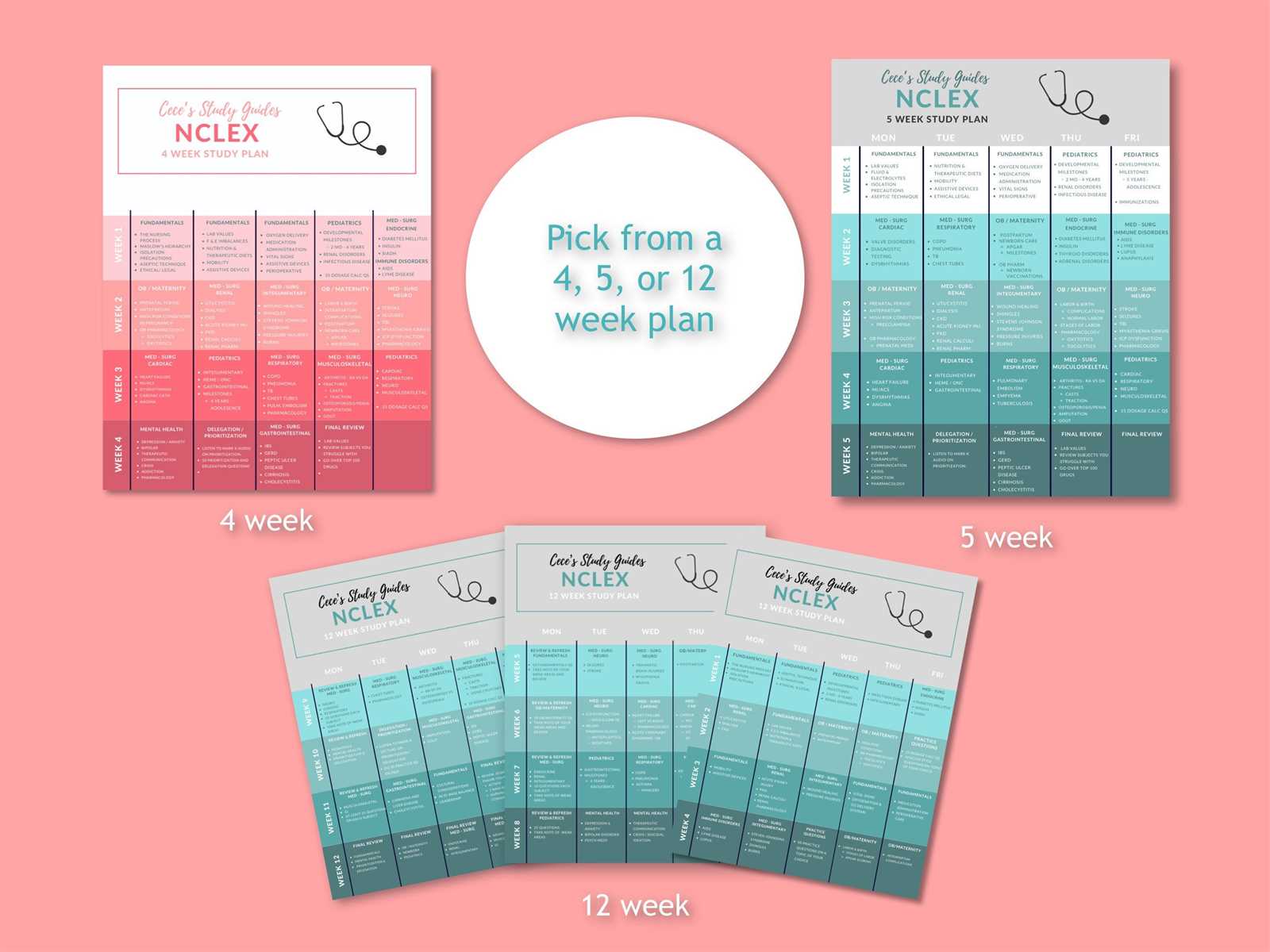
Effective preparation requires planning and structure. By dividing your time into manageable segments, you can increase focus and reduce burnout. A well-organized approach helps in mastering complex topics more efficiently, allowing you to cover all necessary material without feeling overwhelmed.
Prioritize Key Topics
Begin by identifying the most critical areas to focus on. These are often the subjects that carry the most weight or those that you find most challenging. Breaking down your sessions into smaller, focused blocks ensures that you don’t overlook these key areas while still covering a broad range of material.
Set Time Limits

Each session should have a clear time frame. Limiting the duration of each block prevents fatigue and helps maintain concentration. Typically, 25-50 minute segments with short breaks in between are ideal for sustained focus.
| Session Duration | Break Duration | Focus Area |
|---|---|---|
| 45 minutes | 10 minutes | Key concepts or challenging topics |
| 30 minutes | 5 minutes | Review or practice exercises |
| 60 minutes | 15 minutes | Combination of different areas |
By structuring your sessions in this way, you can stay organized and maintain high levels of productivity throughout your entire preparation process. Each block contributes meaningfully to your overall progress, helping you build confidence and competence over time.
Incorporating Practice Questions into Your Routine
Integrating practice questions into your daily regimen is an essential part of mastering any subject. These exercises help reinforce knowledge, identify weak points, and familiarize you with the format of potential assessments. By regularly engaging with question sets, you can track your progress and ensure that your preparation is as effective as possible.
Why Practice Questions Are Key
When you tackle practice questions, you actively engage with the material, reinforcing memory retention. Here are some benefits:
- Improved recall and application of concepts
- Better understanding of complex ideas
- Familiarity with testing patterns and time constraints
- Increased confidence through repetition
How to Incorporate Them Effectively
Consistency and strategy are vital when including these exercises in your daily routine. Here are a few steps to follow:
- Set aside dedicated time each day for question practice.
- Start with easier questions and gradually progress to more challenging ones.
- Review your answers carefully and analyze any mistakes.
- Track your progress and adjust your focus based on weak areas.
Balancing Study with Self-Care
Achieving success in any rigorous exam preparation requires a balanced approach that integrates both focus and well-being. It’s essential to recognize that while committing to your goals is crucial, taking care of your mental and physical health is equally important. Neglecting personal well-being can lead to burnout, stress, and diminished performance. The key lies in managing time effectively so that both productivity and relaxation are given adequate attention.
Maintaining a healthy balance between dedication and rest involves planning your routine in a way that allows you to recharge while staying on track with your progress. A consistent approach to rest, exercise, and healthy eating plays a vital role in sustaining long-term motivation and concentration. Additionally, incorporating moments of mindfulness or relaxation throughout your routine can help ease the tension and refocus your energy.
Creating a balanced approach requires understanding that success isn’t just about how many hours you put in, but also about how well you recover and restore your mental clarity. Schedule regular breaks, get adequate sleep, and don’t be afraid to take time for activities that bring joy and peace. By listening to your body and mind, you can enhance both your performance and well-being.
Remember: Balance is not about perfection, but about finding harmony between effort and rejuvenation. Prioritize your health, and you’ll find that both your learning and personal growth will flourish together.
Tracking Your Progress Effectively
Monitoring your advancement is crucial when preparing for any challenging exam. By keeping track of your efforts, you can identify areas that need more focus and ensure you are moving in the right direction. Regular assessments and adjustments help in building confidence and improving performance over time. The key is to create a system that allows you to measure your success and spot any gaps in your understanding.
One of the most effective ways to measure progress is through periodic evaluations. Whether it’s through practice questions, timed tests, or self-reflection, these assessments provide valuable insight into how much you’ve learned and how much further you need to go. It’s important to approach this tracking process systematically, recording scores, noting mistakes, and analyzing patterns in your performance. This helps in making informed decisions about your next steps and adjusting your focus accordingly.
In addition to formal tests, daily or weekly reviews of your goals and objectives can help keep you on track. Keep a record of the topics you’ve covered, marking off milestones as you complete them. This not only gives you a visual representation of your progress but also motivates you to keep going. When you reach a milestone, take a moment to appreciate how far you’ve come. This reinforcement strengthens your commitment and drives you toward your ultimate goal.
Another helpful tool in tracking is to set small, measurable objectives within your overall plan. Break down large tasks into manageable chunks, allowing you to see continuous improvement. These smaller targets help maintain focus, reduce feelings of being overwhelmed, and make it easier to gauge how well you’re progressing toward mastering the material.
Common Mistakes to Avoid During Preparation
When preparing for any rigorous licensing or certification exam, it is easy to fall into common pitfalls that can hinder progress. Many individuals unknowingly engage in habits that compromise efficiency and lead to unnecessary stress. Understanding and avoiding these mistakes can significantly improve your approach, allowing you to focus on the material and increase your chances of success.
One of the most frequent errors is underestimating the importance of organization. Without a clear plan, it becomes difficult to manage time effectively, leading to rushed or incomplete review sessions. Another mistake is neglecting rest, which may seem counterintuitive, but proper sleep and relaxation are crucial to retention and cognitive function. Additionally, overloading yourself with information without proper understanding can lead to confusion and burnout.
Below is a table summarizing key errors and ways to avoid them:
| Common Mistake | How to Avoid It |
|---|---|
| Lack of a structured plan | Develop a clear schedule with specific goals for each session. |
| Insufficient rest | Ensure adequate sleep and take regular breaks to maintain focus. |
| Overloading information | Focus on mastering concepts before moving on to new material. |
| Neglecting practice tests | Take regular quizzes and mock exams to gauge progress and identify weak areas. |
| Procrastination | Stick to your schedule and avoid last-minute cramming sessions. |
By being mindful of these common errors, you can optimize your preparation and build confidence in your readiness for the exam. A thoughtful and strategic approach will make all the difference in your success.
Revising: Strategies for Retention
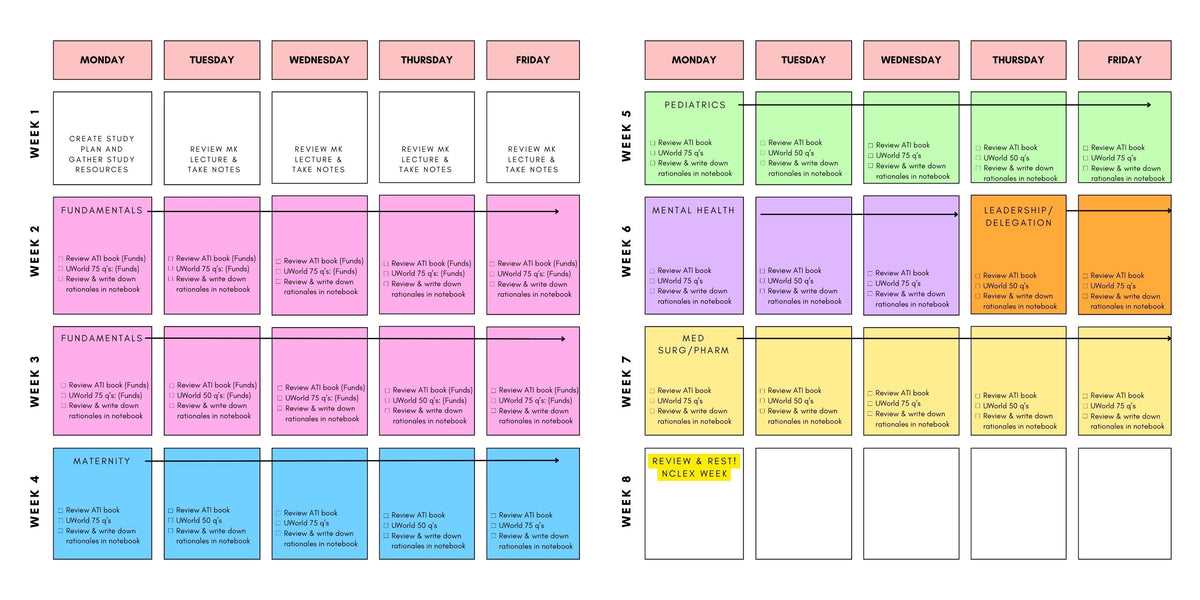
Effective revision is key to ensuring long-term retention of important material. It involves not just reviewing the content, but reinforcing knowledge through techniques that promote deeper understanding and recall. The goal is to avoid the common pitfall of cramming, which often leads to short-lived memorization, and instead focus on methods that help you truly retain the information over time.
One effective approach is spaced repetition. This technique involves revisiting the material at increasing intervals, which strengthens memory consolidation. Another method is active recall, where you actively test yourself on the content, rather than passively rereading notes. Combining these strategies with proper rest and mental breaks ensures that the material is not only learned, but also effectively stored in long-term memory.
| Strategy | Key Benefit | Best Practice |
|---|---|---|
| Spaced Repetition | Strengthens memory retention over time | Review content at increasing intervals (1 day, 3 days, 7 days, etc.) |
| Active Recall | Enhances retrieval of information | Test yourself regularly, using flashcards or mock questions |
| Interleaving | Improves understanding of complex topics | Mix different topics during revision sessions |
| Mind Mapping | Organizes knowledge and helps visualize connections | Create visual diagrams linking key concepts |
By integrating these strategies into your preparation routine, you can maximize retention and ensure a deeper, more enduring grasp of the material.
Utilizing Study Groups for Motivation
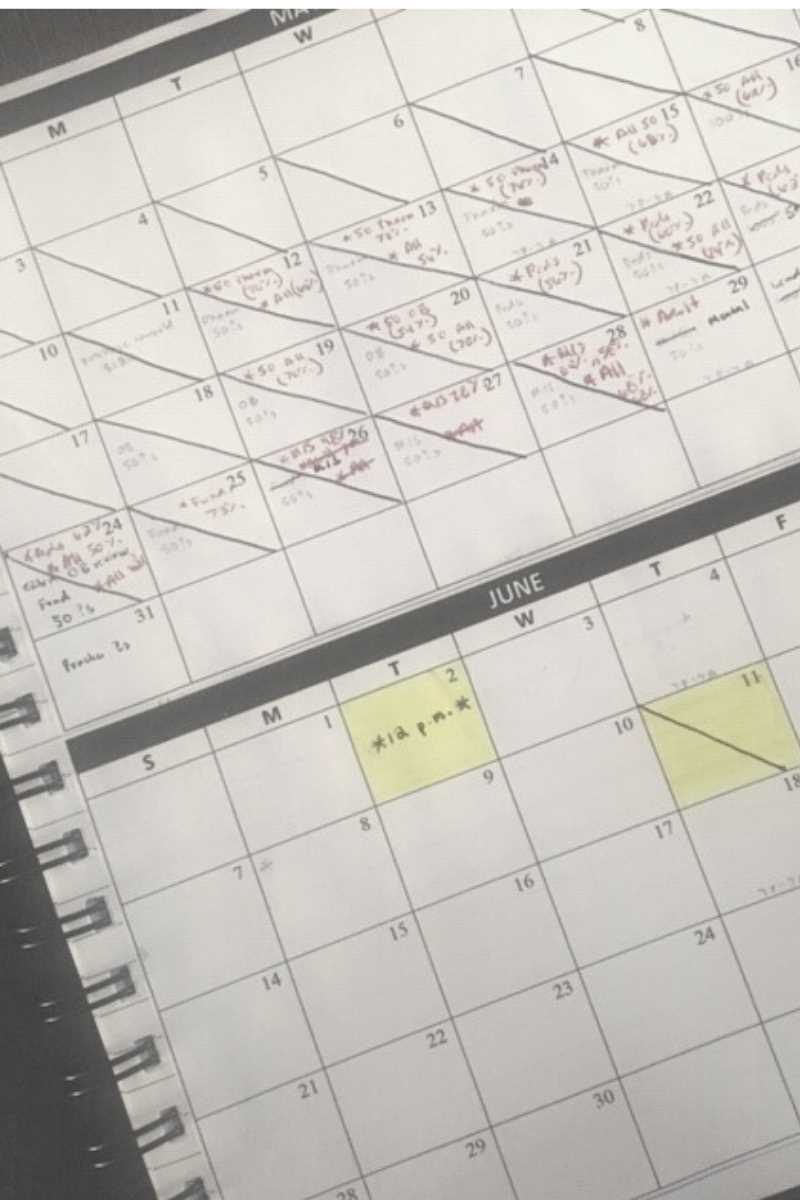
Collaborating with others can be a powerful tool for maintaining focus and enthusiasm when preparing for demanding exams. Engaging with peers not only helps keep the momentum going but also creates a sense of accountability. When surrounded by like-minded individuals, it becomes easier to stay motivated, share valuable insights, and overcome challenges together.
Working in a group allows for the exchange of different perspectives and learning techniques. Each member brings unique strengths, and the collective effort can make the preparation process more efficient and enjoyable. This communal approach also ensures that no one is left behind, as group members can help clarify concepts and offer support when needed.
Moreover, having set times to meet with others provides structure to the preparation process, making it easier to stick to a routine. The social aspect of group study can reduce feelings of isolation, especially when tackling difficult material, and provide a much-needed boost of energy and motivation when it feels like progress is slow.
Staying connected with others and sharing experiences can be an invaluable source of encouragement. The simple act of discussing goals, challenges, and progress with peers can reignite passion and reinforce commitment to the task at hand.
When to Take NCLEX Practice Exams
Taking practice tests is a crucial step in the preparation process for any licensing exam. They serve as a useful tool to assess readiness, identify strengths and weaknesses, and improve test-taking strategies. Knowing the right moments to incorporate these practice sessions into your routine can make a significant difference in your performance on the actual test day.
It is important to schedule practice exams at key points during the preparation period. Rather than waiting until the last minute, spread them out to give yourself ample time to analyze results, review concepts, and make necessary adjustments. Typically, these mock exams should be taken both before and after intensive review phases to gauge progress and refine knowledge gaps.
The following table outlines a suggested timeline for incorporating practice exams into your preparation strategy:
| Week of Preparation | Suggested Practice Exam Timing |
|---|---|
| Week 2-3 | Initial practice exam to assess baseline knowledge and strengths |
| Week 4-5 | Mid-preparation exam to identify weak areas and refine strategies |
| Week 6-7 | Practice exam after focused review of weak areas |
| Week 8-9 | Final practice exam to gauge readiness and familiarize with test conditions |
By following this structured approach, you ensure that practice exams are effectively integrated into your prep schedule, maximizing the benefits of each test attempt.
Staying Focused on Test Day
On the day of an important exam, maintaining mental clarity and focus is crucial for success. The pressure can be overwhelming, but having a strategy to manage stress and stay on track can make all the difference. In this section, we will explore effective methods to keep your concentration sharp and your mind calm during the exam.
One of the first steps is ensuring that you are physically prepared. A good night’s sleep, a healthy breakfast, and proper hydration can help you feel more alert and ready to face the challenge ahead. It’s also important to arrive at the testing center early, giving yourself time to settle in and reduce any feelings of anxiety.
Additionally, keeping a positive mindset and using relaxation techniques during the exam can help you stay in control. Deep breathing exercises, positive affirmations, and taking breaks when necessary can significantly improve your focus and performance.
| Tips for Staying Focused | Benefits |
|---|---|
| Get a good night’s sleep | Helps with mental clarity and focus |
| Eat a balanced meal before the exam | Provides energy and maintains concentration |
| Practice deep breathing exercises | Reduces anxiety and enhances focus |
| Take breaks when allowed | Prevents mental fatigue and keeps you sharp |
| Stay positive and confident | Boosts motivation and performance |
By following these simple strategies, you will be better equipped to stay calm, focused, and perform at your best during the exam. Remember, it’s not just about knowing the material, but also about managing your mindset effectively when it matters the most.
Final Week: Last-Minute Tips
As the exam approaches, it’s time to fine-tune your preparation. The final week is crucial, not for cramming large amounts of new information, but for reinforcing your knowledge and calming your mind. Focus on consolidating what you already know and preparing yourself mentally for the challenge ahead.
1. Prioritize Weak Areas
Review the topics that have caused you the most trouble throughout your preparation. Identify the areas where you’re still unsure, and dedicate some time each day to these subjects. This will help you build confidence in the areas you feel less secure about.
2. Practice with Mock Tests
Taking practice exams under timed conditions is one of the best ways to simulate the real experience. It will help you manage your time effectively, identify any lingering gaps in knowledge, and reduce any exam-day anxiety. The more familiar you are with the format, the more comfortable you’ll be on the actual test day.
3. Focus on Key Concepts
Instead of trying to learn new material, revisit the fundamental principles and concepts that form the backbone of the exam. Having a solid understanding of core concepts will enable you to tackle a wide variety of questions with confidence.
4. Take Care of Your Well-Being
Don’t forget about your physical and mental health. Make sure you’re getting enough sleep, eating well, and staying hydrated. Exercise, even in small amounts, can also help alleviate stress and boost your focus.
5. Stay Calm and Confident
In the final days before the test, it’s natural to feel nervous, but try to stay calm. Trust in the work you’ve done up to this point. Confidence can make a significant difference, so take time to relax and visualize your success.
In the last stretch, quality is more important than quantity. Approach these final days with a clear mind, focus on the essentials, and give yourself the best chance for success on exam day.